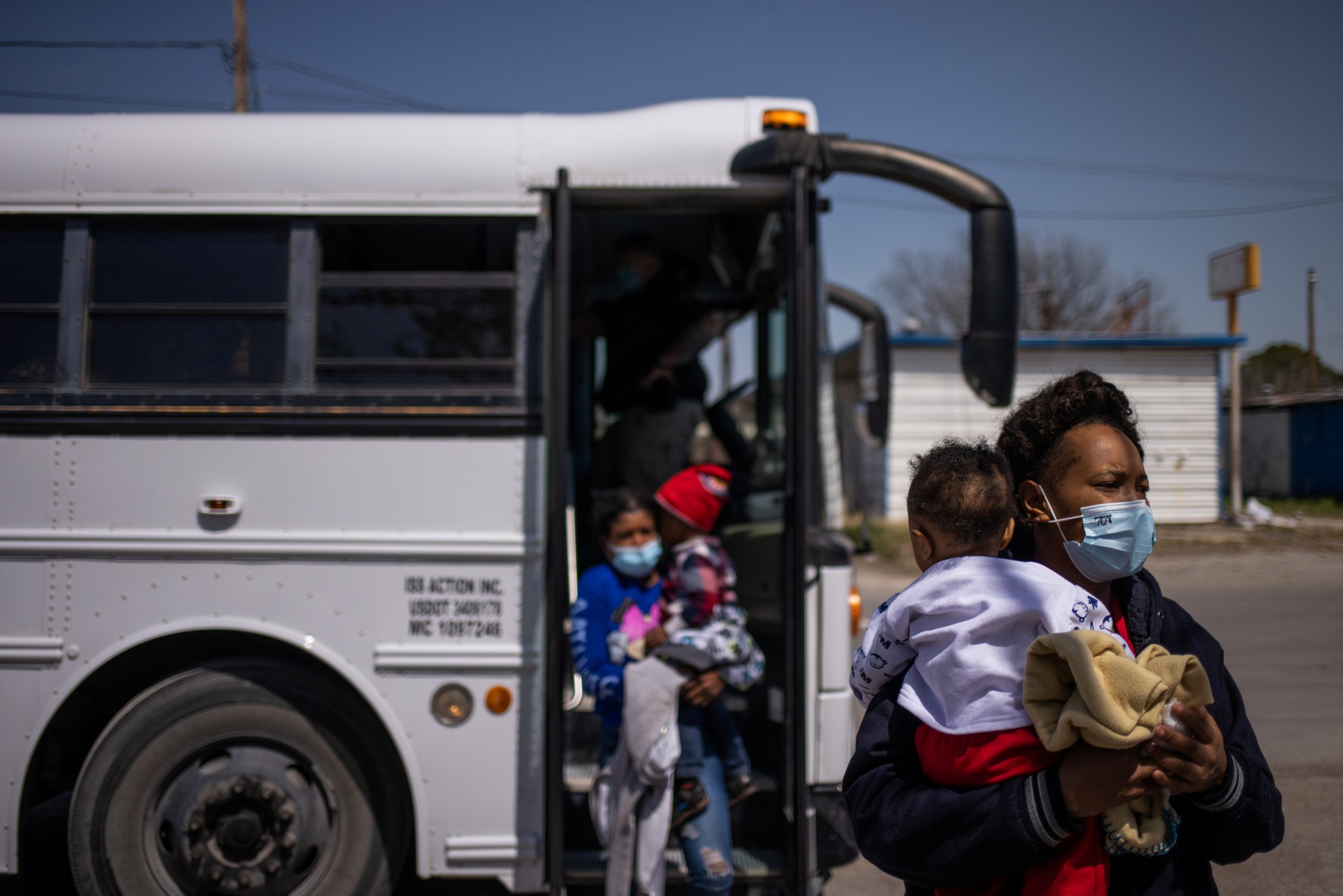If President Joe Biden isn’t willing to solve the border crisis, the people running two of the biggest border states are more than happy to send the problem his way.
According to a report in the Washington Examiner last week, an effort spearheaded by the Republican governors of Arizona and Texas has led to over 2,500 migrants apprehended at the border being shipped to Washington, D.C. — all to bring the crisis home to the legislators who created.
That’s 79 buses of individuals who were released from Border Patrol custody, all with the terminus right in the president’s backyard. And who said Republicans can’t use government-sponsored transportation to solve taxpayer problems?
(Here at The Western Journal, we’ve documented how the White House’s policies have enabled illegal immigration in every conceivable way — and how it will only get worse if and when the president is allowed to end Title 42. We’ll keep bringing America the truth about this failed administration. You can help us by subscribing.)
The buses, which are provided by the state free of charge, have taken the illegal immigrants from the border towns where they’ve been detained straight to the nation’s capital.
“These people are wanting to go somewhere else. They’re not wanting to stay in Arizona,” said Morgan Carr, spokeswoman for Arizona Gov. Doug Ducey.
“From what we’re seeing, they’re all primarily [headed to] the East Coast.”
Texas Gov. Greg Abbott was the first to announce an initiative to provide the buses, stating in April that he planned to “take the border to President Biden.”
“Texans demand and deserve an aggressive, comprehensive strategy to secure our border — not President Biden’s lackluster leadership,” Abbott said in a statement.
“As the federal government continues to roll back commonsense policies that once kept our communities safe, our local law enforcement has stepped up to protect Texans from dangerous criminals, deadly drugs and illegal contraband flooding into the Lone Star State.”
The move was made in response to the administration’s decision to end Title 42, a World War II-era public health policy that allowed immigrants to be summarily deported without an asylum hearing if communicable disease is a concern.
The measure was first invoked under former President Donald Trump’s administration in response to COVID-19 and kept mostly in place by the Biden administration. However, they had planned to roll back the protections in May — until they were stopped by a district court judge’s ruling.
In late May, Abbott announced Texas had already sent dozens of the buses to Washington, calling the program a “relief valve” for border communities.
“And we’re up to our 45th bus now, when you add a zero to that, I think Washington, D.C., is going to soon find out they’re going to be dealing with the same consequences as we’re dealing with,” the governor said.
While Abbott had pledged to drop the migrants off at the U.S. Capitol, the buses have dropped them near Union Station, the District’s main transport hub.
“Migrants typically board trains and long-distance buses at Union Station to continue on to destinations where they have family or friends. The state’s buses are free of charge to migrants, only costing taxpayers,” the Examiner reported.
Arizona, meanwhile, has come up with its own unique spin on the plan: Unlike Texas, they’re sending the migrants and the bill to the Biden administration.
“This is a problem caused by Washington. We’re bringing it to Washington, and we expect Washington to foot the bill. We’re going to send them a bill,” said C.J. Karamargin, a spokesman for Ducey.
While most of the buses have come from Texas, Arizona had sent 14 buses with 523 people aboard to the nation’s capital since mid-May.
Mind you, this is only a drop in the bucket as the border crisis continues apace. In May, over 239,000 illegal immigrants were encountered at the southern border, according to data from Customs and Border Protection. This, yet again, was the highest number in decades.
However, if it’s a drop in the pond, it’s one that gets noticed. In Washington, lawmakers don’t usually share the same concerns that residents of border towns do regarding immigration. At the very least, these 79 buses have managed to export the crisis to the place where it originated — in a town run by an administration that wants to look the other way.
This article appeared originally on The Western Journal.
























